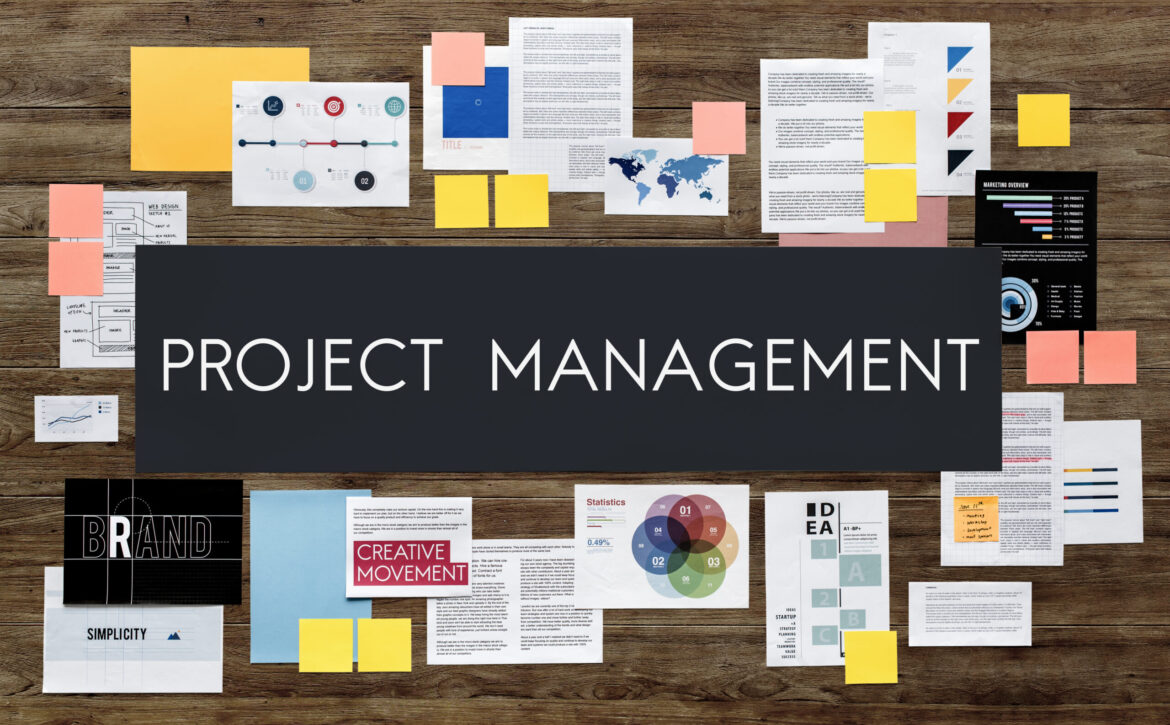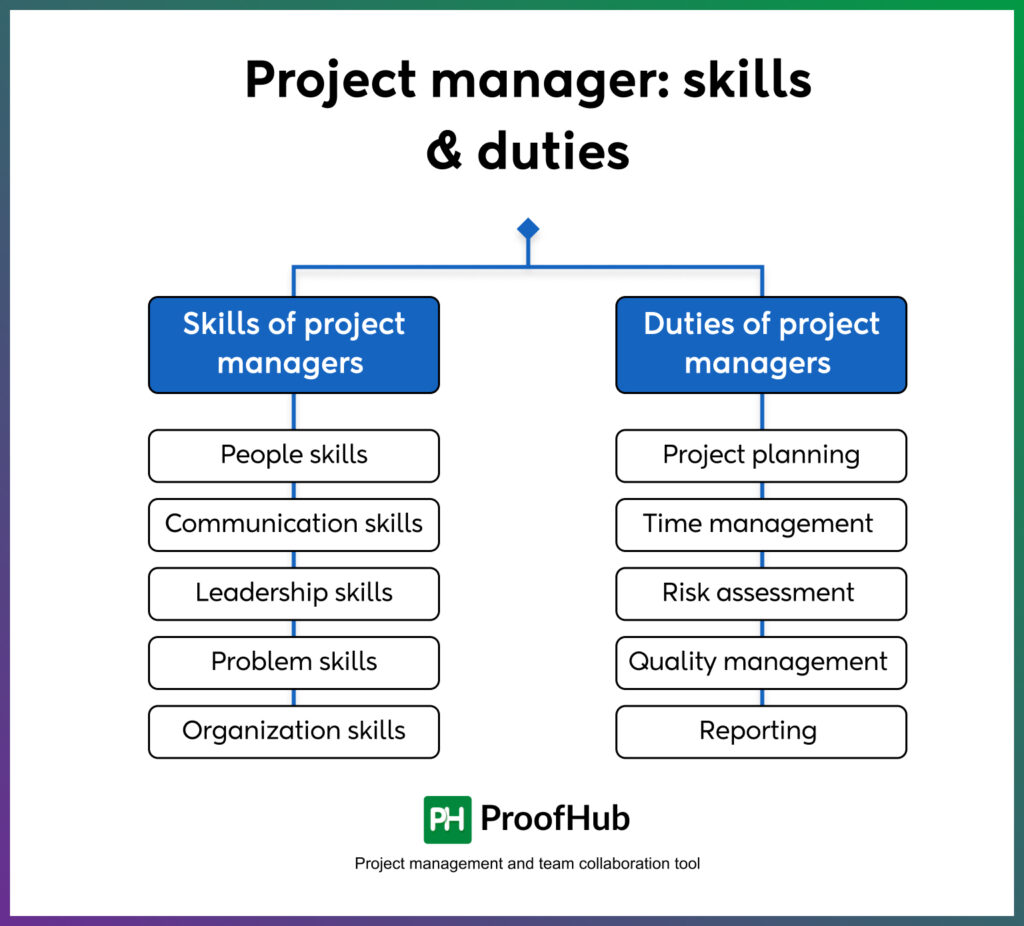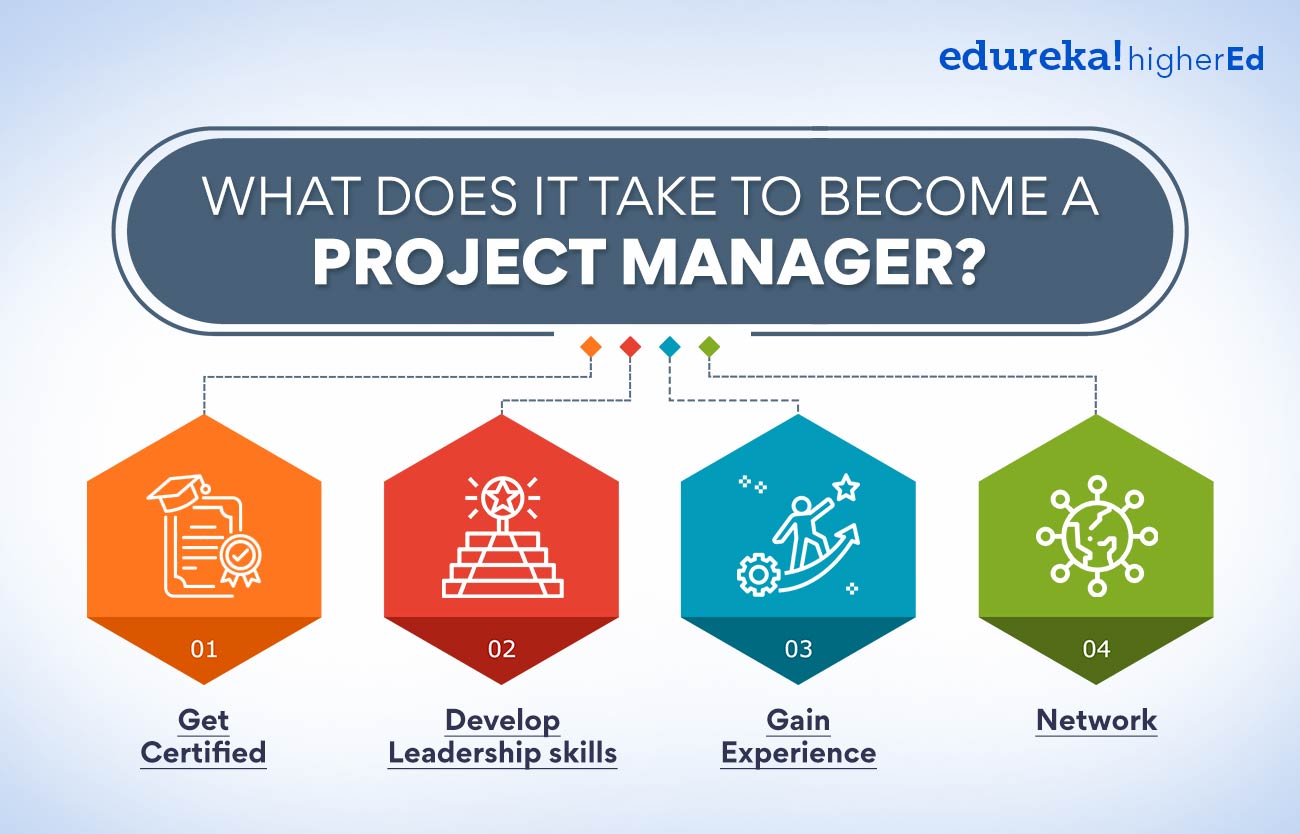
How to Become a Project Management Pro: Expert Tips
Becoming a project manager requires a mix of skills and qualifications. You need to manage tasks, teams, and deadlines effectively.
Project management is a crucial role in many industries. It involves planning, executing, and closing projects while ensuring everything stays on track. Whether you’re eyeing a career switch or starting fresh, understanding the path to becoming a project manager is vital.
The role demands leadership, organization, and communication skills. Certifications can enhance your credentials, but hands-on experience is equally important. The journey involves learning project management methodologies and tools that streamline tasks. It’s about balancing resources, time, and quality. Ready to explore what it takes to step into this dynamic field? Let’s dive deeper into the steps and skills needed to become a successful project manager.

Essential Skills For Project Managers
Being a project manager is both challenging and rewarding. It demands a unique blend of skills to navigate complex projects. Essential skills for project managers ensure seamless execution and successful outcomes. These skills help in managing risks, organizing tasks, and collaborating with teams effectively. Whether you’re pursuing a project management certification or aiming to refine your leadership skills, understanding these essential competencies is crucial.
Leadership Qualities
Leadership is a cornerstone in project management. A project manager must inspire and guide the team towards common goals. Leadership qualities include:
- Visionary Thinking: Ability to foresee project outcomes and align team efforts.
- Decisiveness: Making quick and informed decisions under pressure.
- Empathy: Understanding team members’ perspectives and needs.
- Motivation: Encouraging team collaboration and maintaining high morale.
Incorporating agile methodology enhances leadership capabilities. It fosters adaptability and stakeholder engagement. Risk management becomes smoother when leaders are proactive and attentive. This ensures project goals are met efficiently.
Communication Skills
Effective communication is vital for project managers. It ensures clear understanding among team members and stakeholders. Here’s why communication skills matter:
- Clarity: Conveying project goals and tasks without ambiguity.
- Listening: Paying attention to feedback and concerns.
- Conflict Resolution: Addressing disagreements and finding solutions.
- Stakeholder Engagement: Keeping stakeholders informed and involved.
Organizational skills complement communication. They help in structuring information and tasks. A project manager with strong communication skills enhances team collaboration. This leads to smoother project execution and improved outcomes.
Time Management
Time management strategies are essential for handling multiple tasks. Project managers must prioritize tasks effectively. Key aspects of time management include:
- Planning: Setting realistic deadlines and milestones.
- Prioritization: Identifying urgent tasks and focusing on them.
- Delegation: Assigning tasks based on team strengths.
- Monitoring: Tracking progress and adjusting plans as needed.
Organizational skills play a crucial role in time management. They ensure tasks are structured and deadlines are met. Project managers can leverage these skills to enhance productivity. This results in successful project delivery and satisfied stakeholders.
Educational Background
Becoming a project manager involves much more than just overseeing tasks. It requires a solid educational background to understand the intricacies of project management. A structured learning path provides the foundation for effective project management methodologies. This section will delve into relevant degrees, certifications, and continuous learning opportunities that are crucial for aspiring project managers.
Relevant Degrees
A strong educational background is vital for a successful project management career. Pursuing a Project Management Degree can be a great start. Such programs often cover essential skills for project managers like planning, executing, and overseeing projects. Consider these degrees:
- Bachelor’s in Business Administration – Offers a broad understanding of business operations.
- Bachelor’s in Management – Focuses on leadership in project management.
- Master’s in Project Management – Provides advanced knowledge of project management tools and techniques.
Here is a table that outlines some key courses typically found in these programs:
| Course | Description |
|---|---|
| Project Planning | Covers techniques for effective project planning and scheduling. |
| Risk Management | Focuses on identifying and mitigating project risks. |
| Agile Project Management | Introduces agile methodologies for flexible project execution. |
Certifications
Project management certifications add a significant edge to your professional profile. They demonstrate your expertise and commitment to the field. Here are some popular project management certifications:
- Project Management Professional (PMP) – Recognized globally and covers various project management methodologies.
- Certified ScrumMaster (CSM) – Focuses on agile project management practices.
- PRINCE2 Certification – Offers a structured approach to effective project management.
Certification courses often include project management training that covers:
- Scope and schedule management
- Resource allocation
- Quality assurance
Such certifications not only boost your resume but also enhance your understanding of project management tools.
Continuous Learning
The field of project management is dynamic. Continuous learning is crucial for staying updated with the latest trends. Engaging in professional development in project management ensures you remain relevant. Consider these methods for continuous learning:
- Attend workshops and seminars on new project management methodologies.
- Participate in online courses focused on emerging trends.
- Join professional networks and forums to exchange ideas.
Reading industry publications and books on leadership in project management can also provide valuable insights. Another option is to subscribe to podcasts or webinars for regular updates. Continuous learning not only enhances your skills for project managers but also opens new opportunities in your project management career.
Choosing A Project Management Methodology
Becoming a project manager involves more than just overseeing tasks. It’s about choosing the right project management methodology that aligns with your team and goals. This decision impacts how effectively you manage resources, risks, and timelines. With various methodologies available, understanding their core principles is crucial. Let’s explore some popular methodologies to help you make an informed choice.
Agile Approach
The Agile Methodology is renowned for its flexibility and responsiveness. It’s ideal for projects where requirements evolve over time. Agile emphasizes team collaboration and stakeholder engagement. The Scrum Framework, a subset of Agile, is commonly used. This framework divides tasks into sprints, allowing for constant feedback and adjustment. Benefits of Agile:
- Quick adaptation to changes.
- Improved team collaboration.
- Enhanced stakeholder engagement.
Agile is perfect for tech and software industries. It requires a team that’s comfortable with constant change. For those seeking a Project Management Certification, Agile certifications are highly valued.
| Aspect | Agile |
|---|---|
| Flexibility | High |
| Documentation | Light |
| Risk Management | Ongoing |
Waterfall Model
The Waterfall Model is structured and linear. Each project phase must be completed before moving to the next. This methodology is suitable for projects with clear, unchanging requirements. Project Planning is crucial here, as changes are costly. Advantages of the Waterfall Model:
- Clear structure and timelines.
- Easy to understand.
- Strong emphasis on documentation.
Waterfall suits industries like construction and manufacturing. These fields require strict adherence to plans. For a Project Manager, this model simplifies resource allocation.
| Aspect | Waterfall |
|---|---|
| Flexibility | Low |
| Documentation | Heavy |
| Risk Management | Initial |
Hybrid Methods
Hybrid Methods blend Agile and Waterfall, offering flexibility with structure. These methods are beneficial for projects with both stable and dynamic parts. They allow resource allocation to be adjusted as needed. Why choose Hybrid:
- Adaptable to various project types.
- Balance between project lifecycle structure and flexibility.
- Improved team collaboration and communication.
Hybrid Methods are gaining popularity. They support industries that require both innovation and stability. For those aiming for Project Management Certification, understanding both methodologies is advantageous.
| Aspect | Hybrid |
|---|---|
| Flexibility | Medium |
| Documentation | Moderate |
| Risk Management | Balanced |

Gaining Practical Experience
Becoming a project manager requires more than just theoretical knowledge. To truly excel, gaining practical experience is essential. This hands-on experience helps bridge the gap between learning project management methodologies and applying them in real-world situations. It allows you to develop vital project management skills, understand project management software, and prepare for a successful career in project management. Let’s explore various avenues to gain this invaluable experience.
Internships
Internships provide a fantastic opportunity to immerse yourself in the project management field. They offer a structured environment to learn and apply project management methodologies. Interns often work alongside experienced professionals, gaining insights into project management training and agile project management. Benefits of internships include:
- Real-world exposure to project management software and tools.
- Understanding of project management skills required for success.
- Opportunity to work on live projects, enhancing your project management experience.
Consider this table for common internship tasks:
| Task | Skill Developed |
|---|---|
| Assisting in project planning | Strategic thinking |
| Monitoring project progress | Analytical skills |
| Communicating with stakeholders | Interpersonal skills |
Internships may also help you prepare for a PMP certification, as they provide practical insights aligned with project management courses.
Volunteering
Volunteering is another excellent way to gain project management experience. Many non-profits and community organizations need help managing projects. Volunteering allows you to apply project management skills in a flexible environment, often requiring creative problem-solving. Advantages of volunteering:
- Exposure to diverse project management methodologies.
- Development of leadership and collaboration skills.
- Opportunity to manage small projects independently.
Projects you might encounter:
- Organizing community events.
- Coordinating volunteer teams for fundraisers.
- Managing social media campaigns.
Volunteering can be a stepping stone to formal project management certification, showcasing your commitment to developing project management experience.
Entry-level Roles
Starting with entry-level roles in project management can provide a strong foundation. These roles, such as project coordinator or junior project manager, offer a chance to build your project management skills systematically. Entry-level positions typically involve:
- Supporting senior project managers.
- Handling administrative tasks related to project management software.
- Conducting research for project management training sessions.
Table of typical responsibilities:
| Responsibility | Skill Developed |
|---|---|
| Scheduling meetings | Time management |
| Updating project documentation | Attention to detail |
| Assisting in risk management | Problem-solving |
Entry-level roles can also prepare you for advanced project management courses, enhancing your career in project management.
Building A Professional Network
Building a professional network is essential for anyone pursuing a career in project management. It opens doors to new opportunities, helps in gaining insights from experienced professionals, and enhances your Project Management Skills. A strong network can significantly boost Career Advancement In Project Management by connecting you with the right people and resources. Engaging in Networking For Project Managers is a strategic step towards Professional Development In Project Management. Below are some effective ways to build your network and strengthen your Project Management Career Path.
Networking Events
Attending Project Management Networking Events is a powerful way to meet industry professionals. These events provide a platform to exchange ideas, share experiences, and learn about the latest trends in project management. Here are some tips to make the most out of these events:
- Prepare a concise introduction about yourself.
- Set clear goals for what you want to achieve.
- Engage in conversations and ask insightful questions.
- Follow up with contacts you meet.
Consider participating in events such as:
| Event Type | Description |
|---|---|
| Workshops | Hands-on sessions to improve Project Management Skills. |
| Conferences | Large gatherings with expert speakers and networking opportunities. |
| Seminars | Focused discussions on specific topics in project management. |
Online Communities
Joining a Project Management Community online is an excellent way to connect with peers globally. These platforms offer a wealth of knowledge and support from individuals at different stages of their Project Management Career Path. Participate in Online Project Management Courses to gain new insights and stay updated with industry standards. Here are some popular online communities:
- LinkedIn Groups: Engage in discussions and share articles related to project management.
- Reddit Forums: Participate in conversations about challenges and solutions in project management.
- Facebook Groups: Join groups dedicated to specific project management methodologies.
Being active in these communities can lead to Professional Development In Project Management by exposing you to diverse perspectives and innovative practices.
Mentorship Opportunities
Finding a Project Management Mentorship is a valuable step in developing your career. A mentor can guide you through the nuances of the Project Management Career Path and provide personalized advice. Here’s how you can find mentorship opportunities:
- Attend Project Management Networking Events and express your interest in mentorship.
- Join professional organizations that offer mentorship programs.
- Use LinkedIn to connect with experienced professionals who may offer guidance.
Mentors can help you identify the right Project Management Certification to pursue and offer feedback on your progress. They play a crucial role in shaping your career and helping you achieve your goals in project management.
Leveraging Technology Tools
Project management is an exciting field that requires a unique blend of skills and tools. Leveraging technology tools can significantly enhance your effectiveness in managing projects. These tools streamline processes, improve communication, and provide insights into project progress. Understanding and utilizing the right technology tools is crucial in developing your project management skills. Let’s explore some key tools that can aid in successful project management.
Project Management Software
Project management software is essential for organizing tasks, schedules, and resources. It helps in implementing various project management methodologies, including Agile project management. This software offers features such as:
- Task Assignment: Assign tasks to team members and track progress.
- Scheduling: Create timelines and set deadlines.
- Resource Allocation: Allocate resources efficiently.
Popular software includes Trello, Asana, and Microsoft Project. These tools support project planning and tracking, ensuring adherence to project management best practices. Below is a comparison table of features:
| Software | Task Assignment | Scheduling | Resource Allocation |
|---|---|---|---|
| Trello | ✔ | ✔ | ✖ |
| Asana | ✔ | ✔ | ✔ |
| Microsoft Project | ✔ | ✔ | ✔ |
Choosing the right software enhances your project management skills and aids in project management certification.
Collaboration Tools
Effective team collaboration is crucial for project success. Collaboration tools facilitate communication and coordination among team members. These tools include:
- Messaging Platforms: Use Slack or Microsoft Teams for instant communication.
- File Sharing: Share documents via Google Drive or Dropbox.
- Video Conferencing: Conduct meetings using Zoom or Skype.
Collaboration tools support team collaboration software and help maintain seamless communication. They play a vital role in project management frameworks by promoting transparency and accountability. Using these tools ensures that everyone is on the same page, which is a core aspect of project management training. It enhances collaboration and helps in implementing project management methodologies effectively.
Reporting Tools
Reporting tools provide insights into project progress and performance. They are vital for tracking key metrics and making informed decisions. Common features include:
- Data Visualization: Create charts and graphs to visualize data.
- Performance Metrics: Track KPIs and other performance indicators.
- Custom Reports: Generate tailored reports for stakeholders.
Tools like Tableau, Power BI, and Google Data Studio are popular choices. They support project tracking tools and help in adhering to project management best practices. These reporting tools enhance project management skills by providing insights that guide strategic decisions. They are indispensable in Agile project management, where data-driven decision-making is key. Leveraging these tools ensures successful project delivery and boosts your efficiency as a project manager.
Navigating Challenges
Becoming a project manager is more than just earning a Project Management Certification. It’s about mastering the art of navigating challenges that arise during the project lifecycle. Every project manager faces hurdles. The key is to manage them effectively and keep the project on track. From conflict resolution to budget constraints, each challenge requires a unique approach. Understanding how to tackle these issues is crucial for successful project planning and execution.
Conflict Resolution
Conflict in team collaboration is inevitable. Differences in opinions, misunderstandings, and varied perspectives can lead to disagreements. A project manager must handle these conflicts with strong leadership skills. Here are some strategies:
- Active listening: Understand each team member’s perspective. This helps in addressing their concerns.
- Open communication: Encourage transparent stakeholder communication. This builds trust and resolves issues quickly.
- Problem-solving: Focus on solutions rather than dwelling on problems. This keeps the team moving forward.
Using Agile Methodology can also aid in conflict resolution. Its iterative approach allows teams to adapt to changes. This flexibility reduces friction and improves team collaboration. Remember, effective conflict resolution is essential for a harmonious work environment.
Budget Constraints
Budget constraints often challenge project managers. Managing finances requires careful resource allocation and planning. Here’s how to tackle budget issues:
- Detailed Project Planning: Begin with a comprehensive plan. Outline every expense and allocate resources wisely.
- Regular Monitoring: Track expenses continuously. This helps in identifying and addressing issues early.
- Risk Management: Anticipate potential risks. Prepare contingency plans to handle unforeseen expenses.
A table can also be useful for tracking budget allocations:
| Expense Category | Allocated Budget | Actual Spending | Variance |
|---|---|---|---|
| Personnel | $10,000 | $9,500 | $500 |
| Materials | $5,000 | $5,200 | -$200 |
Effective budget management ensures project success. It prevents overspending and keeps stakeholders satisfied.
Time Management Issues
Time management is a common challenge in project management. Delays can impact the project lifecycle and stakeholder satisfaction. Here’s how to manage time effectively:
- Task Prioritization: Identify critical tasks. Focus on these to prevent bottlenecks.
- Set Clear Deadlines: Establish realistic timelines. This keeps the team focused and aligned.
- Regular Updates: Provide frequent updates to stakeholders. This enhances communication and accountability.
Implementing Agile Methodology can improve time management. Its incremental approach allows for quick adjustments. This flexibility is valuable in meeting tight deadlines. Ultimately, mastering time management requires disciplined execution and ongoing evaluation.
Advancing Your Career
Advancing your career in project management requires dedication and strategic planning. As you navigate this path, understanding key aspects like promotions, specializations, and leadership roles becomes crucial. This journey is not just about managing tasks but also about evolving your project management skills and embracing opportunities for career advancement.
Promotions
Promotions in project management often hinge on your ability to demonstrate exceptional project planning and execution. Employers look for project managers who can deliver projects on time and within budget. Here are some steps to enhance your chances:
- Excel in Risk Management: Identifying potential risks and mitigating them effectively is crucial.
- Obtain a Project Management Certification: Certifications like PMP can significantly bolster your credentials.
- Utilize Project Management Tools: Familiarity with tools such as Trello, Asana, or Microsoft Project can improve efficiency.
Consider the following table, which outlines skills that can contribute to promotions:
| Skill | Impact |
|---|---|
| Communication | Facilitates clear directives and team collaboration. |
| Agile Methodology | Enhances flexibility and adaptability in project execution. |
Specializations
Specializing in specific areas of project management can set you apart in the industry. This focus allows you to develop niche expertise and cater to particular needs. Consider these popular specializations:
- Agile Methodology: Become proficient in Agile practices for dynamic and adaptive project environments.
- Risk Management: Focus on identifying, analyzing, and mitigating project risks.
- Leadership In Project Management: Cultivate skills to lead and inspire teams effectively.
Specializing not only enhances your project management skills but also opens doors to advanced roles. It positions you as a valuable asset in your organization and industry.
Leadership Roles
Transitioning into leadership roles demands more than technical skills. It requires a robust understanding of both people and processes. To succeed, project managers must:
- Develop Strong Interpersonal Skills: Effective communication and empathy are vital.
- Embrace Leadership In Project Management: Inspire and motivate teams to achieve project goals.
- Enhance Strategic Thinking: Align project outcomes with organizational objectives.
Leadership roles often involve overseeing multiple projects and teams. This requires proficiency in project planning and execution. Leaders in project management must balance the demands of stakeholders while ensuring successful project delivery. Aspiring leaders should consider pursuing advanced certifications and continuous learning to stay competitive.

Frequently Asked Questions
What Qualifications Do You Need To Be A Project Manager?
Project managers typically need a bachelor’s degree in business or related fields. Certifications like PMP can enhance qualifications. Leadership, communication, and organizational skills are essential. Experience in project management or relevant industry adds value. Continuous learning and adaptability are important for career growth.
What Does It Take To Become A Project Manager?
To become a project manager, earn a relevant degree and gain experience in project management. Develop strong leadership, communication, and organizational skills. Obtain certifications like PMP or PRINCE2 to enhance your credentials. Continuously learn and adapt to industry trends. Networking and mentorship can also be beneficial.
What Qualifications Do I Need For Project Management?
Project management requires a bachelor’s degree in business or related fields. Certifications like PMP or CAPM enhance credibility. Skills in leadership, communication, and organization are essential. Experience in managing teams and projects is beneficial. Some roles may require advanced degrees or specific industry knowledge.
How To Get Into Pm With No Experience?
Gain relevant skills through online courses and certifications in project management. Volunteer for projects to build practical experience. Network with professionals in the field to learn and find opportunities. Tailor your resume to highlight transferable skills such as leadership, communication, and organization.
Consider entry-level roles that lead to project management positions.
Conclusion
Becoming a project manager takes time and effort. Start by learning the basics. Practice your skills daily. Network with other professionals. Gain experience through small projects. Stay organized and focused. Always keep communication clear. Adapt to new challenges swiftly. Seek feedback for improvement.
Remember, persistence is key. Keep updating your knowledge regularly. Stay passionate about your work. Success comes with dedication and hard work. Your journey is unique and rewarding. Embrace each step along the way. Project management is a fulfilling career. Enjoy every accomplishment.
Celebrate each milestone. Keep growing and learning. Achieve your goals with patience.




